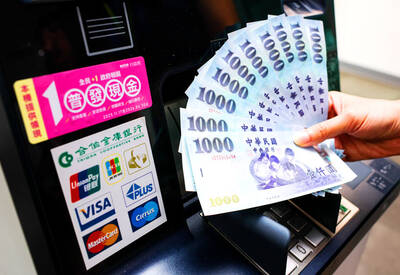The Taipei Department of Health yesterday said it soon plans to require all ramen stores with two or more shops in the city to register their ingredients to ensure food safety and disclose information about food products to the public.
Established in 2013, the city’s food ingredient registration Web site — Food Tracer Taipei — contains results from the health department’s food inspections, as well as data posted by stores and restaurants about the ingredients that they use.
There were 10 major categories of food establishments that need to register ingredients — including chain beverage and iced dessert stores, chain coffee shops, fast food restaurants and chain breakfast shops — and the health department announced that it has opened two new categories: chain Japanese ramen stores and traditional markets.
Fourteen Japanese ramen brands have already registered 95 types of products on the platform, including 682 ingredients, department section head Chen Yi-ting (陳怡婷) said.
The department is planning to require all ramen stores with two or more shops in the city to register their ingredients on the platform. Starting next month, it would gather feedback and expect to implement the regulation by next year at the earliest.
Eight traditional markets with 232 food stalls are using the platform, the Taipei Market Administration Office said, adding that four more markets would be included by the end of the year, a total of 350 food stalls.
The full disclosure of ingredients on the platform is a first step toward incorporating autonomous management and is in line with the city government’s principles of openness and transparency, Taipei Deputy Mayor Teng Chia-chi (鄧家基) said.
Taipei is the food capital of the nation and many foreign and local cuisines are popular in the city, so the government and the restaurants have a responsibility to ensure that the public can enjoy safe and delicious food, Department of Health Commissioner Huang Shier-chieg (黃世傑) said.
People can scan QR codes of establishments on the registration platform to learn about the ingredients used in food products they want to purchase, he added.

The Central Weather Administration (CWA) today issued a sea warning for Typhoon Fung-wong effective from 5:30pm, while local governments canceled school and work for tomorrow. A land warning is expected to be issued tomorrow morning before it is expected to make landfall on Wednesday, the agency said. Taoyuan, and well as Yilan, Hualien and Penghu counties canceled work and school for tomorrow, as well as mountainous district of Taipei and New Taipei City. For updated information on closures, please visit the Directorate-General of Personnel Administration Web site. As of 5pm today, Fung-wong was about 490km south-southwest of Oluanpi (鵝鑾鼻), Taiwan's southernmost point.

Tropical Storm Fung-Wong would likely strengthen into a typhoon later today as it continues moving westward across the Pacific before heading in Taiwan’s direction next week, the Central Weather Administration (CWA) said. As of 8am, Fung-Wong was about 2,190km east-southeast of Cape Oluanpi (鵝鑾鼻), Taiwan’s southernmost point, moving westward at 25kph and possibly accelerating to 31kph, CWA data showed. The tropical storm is currently over waters east of the Philippines and still far from Taiwan, CWA forecaster Tseng Chao-cheng (曾昭誠) said, adding that it could likely strengthen into a typhoon later in the day. It is forecast to reach the South China Sea

Almost a quarter of volunteer soldiers who signed up from 2021 to last year have sought early discharge, the Legislative Yuan’s Budget Center said in a report. The report said that 12,884 of 52,674 people who volunteered in the period had sought an early exit from the military, returning NT$895.96 million (US$28.86 million) to the government. In 2021, there was a 105.34 percent rise in the volunteer recruitment rate, but the number has steadily declined since then, missing recruitment targets, the Chinese-language United Daily News said, citing the report. In 2021, only 521 volunteers dropped out of the military, the report said, citing

Nearly 5 million people have signed up to receive the government’s NT$10,000 (US$322) universal cash handout since registration opened on Wednesday last week, with deposits expected to begin tomorrow, the Ministry of Finance said yesterday. After a staggered sign-up last week — based on the final digit of the applicant’s national ID or Alien Resident Certificate number — online registration is open to all eligible Taiwanese nationals, foreign permanent residents and spouses of Taiwanese nationals. Banks are expected to start issuing deposits from 6pm today, the ministry said. Those who completed registration by yesterday are expected to receive their NT$10,000 tomorrow, National Treasury